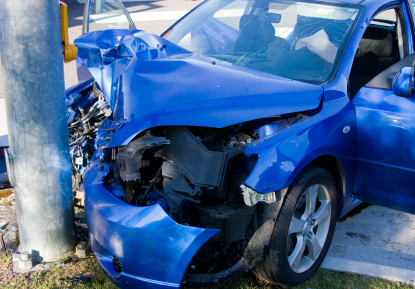 Car insurance fraud is a growing problem that affects everyone. The money car insurance companies lose to fraudulent claims gets passed to consumers through higher insurance policy rates. You can also directly lose money if you are the victim of auto insurance fraud by having to pay deductibles and policy rate increases. Protect your finances by learning to identify car insurance fraud and how to protect yourself from becoming a victim.
Car insurance fraud is a growing problem that affects everyone. The money car insurance companies lose to fraudulent claims gets passed to consumers through higher insurance policy rates. You can also directly lose money if you are the victim of auto insurance fraud by having to pay deductibles and policy rate increases. Protect your finances by learning to identify car insurance fraud and how to protect yourself from becoming a victim.What Is Car Insurance Fraud?
There are many types of car insurance fraud. Car insurance fraud ranges from people lying to insurance providers to get cheaper rates to organized crime rings that stage fake auto accidents to collect money from insurance companies. Some common types of insurance fraud are:
- Insurance policy scams: Fake insurance salesman sell bogus insurance policies to unsuspecting consumers
- Inflated claims: Claiming more damage than actually occurred to collect more money
- Fraudulent theft or damage: Having someone steal or burn a vehicle to collect money from the insurance company
- Staged Accidents: Staging an auto accident and claiming false injuries
- Runners: A scam where someone (the runner) directs a victim of an auto accident to a fake medical facility that will fake medical claims
Watch out
- Purchasing car insurance: Only purchase car insurance policies from licensed insurance companies or licensed insurance brokers and get a written copy of your policy (including what it covers). Read your policy to get a thorough understanding of what it covers.
- While driving: Keep plenty of distance between your car and cars in front of you. Trust your instincts. If another vehicle is acting suspiciously by driving erratically or too close to you, call the police and pull into a safe spot such as a police station or gas station.
- After an accident: Call the police and your insurance company immediately after an accident, no matter how minor the damage and get a police report or the incident.
- Avoiding scams: Never sign a blank insurance claim form. Be weary of bystanders, towing companies, medical professionals, or auto repair shops that try to pressure you to go to a certain facility for service or treatment, or try to pressure you to file false claims.

 Whether you’re getting auto insurance for the first or fifth time, the hardest choice to make is whether you would have limited or full tort. The choice between limited and full tort is made even harder with the confusing definition available on most insurance companies websites. Ultimately, it’s important to fully understand this concept in order to choose the option best for you and your family
Whether you’re getting auto insurance for the first or fifth time, the hardest choice to make is whether you would have limited or full tort. The choice between limited and full tort is made even harder with the confusing definition available on most insurance companies websites. Ultimately, it’s important to fully understand this concept in order to choose the option best for you and your family One of the most valuable assets to come out of our technological renaissance can be found in the active safety systems in newer automobiles. Not only are these safety systems valuable because they prevent injuries and death by reducing accidents, but they’re also valuable in that they can help to reduce both
One of the most valuable assets to come out of our technological renaissance can be found in the active safety systems in newer automobiles. Not only are these safety systems valuable because they prevent injuries and death by reducing accidents, but they’re also valuable in that they can help to reduce both  In the past few years, one-time Disney star Lindsay Lohan has had a lot of trouble driving without incident. As such, she’s become pretty high risk in the eyes of the insurance companies. On her most recent movie set, the insurance company temporarily insuring her for the movie stipulated that in order to be covered, she must not drive during the months and weeks that she was working on the film. Unfortunately, she did not comply with this rule and—after getting behind the wheel of a rented Porsche—had yet another incident.
In the past few years, one-time Disney star Lindsay Lohan has had a lot of trouble driving without incident. As such, she’s become pretty high risk in the eyes of the insurance companies. On her most recent movie set, the insurance company temporarily insuring her for the movie stipulated that in order to be covered, she must not drive during the months and weeks that she was working on the film. Unfortunately, she did not comply with this rule and—after getting behind the wheel of a rented Porsche—had yet another incident.  Legislators in both California and Colorado have proposed new laws that would prohibit communities from charging a fee when police and fire personnel respond to motor vehicle accidents.
Legislators in both California and Colorado have proposed new laws that would prohibit communities from charging a fee when police and fire personnel respond to motor vehicle accidents.